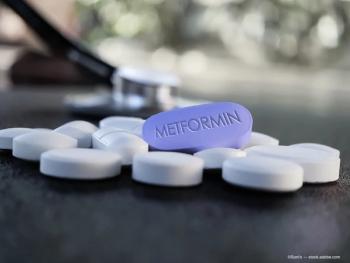
Discussing how fluid dynamic affect visual acuity in wet macular degeneration
At the 2022 American Academy of Ophthalmology meeting, Justis Ehlers, MD, presented a talk titled, "Defining the Fluid Problem in Neovascular AMD: To Dry or Not to Dry?"
Video transcript
Note: This transcript has been lightly edited for clarity.
Sheryl Stevenson: We're joined today with Dr. Justis Ehlers, who is presenting this year at the American Academy of Ophthalmology. Welcome. Dr. Ehlers, could you tell us a little bit more about your talk this year?
Justis Ehlers, MD: Sure, Sheryl. Thank you so much for having me; it's a pleasure to be able to share a little bit about the data that we're presenting at the Academy meeting.
The focus of the talk, and as some of the research that we're presenting is really around the importance of understanding what's going on from a fluid dynamics standpoint in wet macular degeneration, and how that may impact visual outcomes. There's been a lot of research that suggests that the presence of different fluids may have different impacts on overall visual acuity. In particular, some of the early data has said that subretinal fluid may be associated with better visual acuity and intraretinal fluid may be associated with more significant visual acuity loss.
Interestingly, in some of these studies, they've actually demonstrated that the presence of subretinal fluid may actually be better than not having any fluid in terms of vision. And we wanted to dive into that a little bit more in terms of evaluating ways to look at the OCT, that may have a better understanding for us as clinicians.
And what we were able to do is, using some advanced image processing, is look at the overall intact aspect of the ellipsoid zone and the integrity that's there. And really judging whether or not there may be underlying atrophy.
And what we found was interesting, and that was was that if the outer retina was intact, the retina being dry was clearly the best visual acuity outcome, really suggesting that that really is what we should push for, as clinicians. Subretinal fluid being present was the second in terms of overall visual acuity outcomes, and then intraretinal fluid, and then actually underlying atrophy being the overall worst visual acuity outcomes.
And so you can see how understanding that key feature of the outer retina really drives the difference that may push outcomes towards more limited visual acuity when you sum the entire population together.
The last piece that we looked at was this concept around volatility. And that is, is that if the fluid is changing significantly, does that have an impact overall? And one of the things that we did find that I think was sort of unexpected, was that dynamic subretinal fluid, so that is that fluid that's changing from visit to visit, appears to have a more deleterious effect on visual acuity than fluid that's static.
And so again, really understanding and as we have more and more therapeutics available to us to understand what's happening on a really monthly, and really weekly basis, for these patients will be helpful to understand how we can optimize their outcomes overall.
Stevenson: Excellent. And what would be the take-home message for the clinician in their daily practice?
Ehlers: I think you'll one of the key take-home messages is just use caution in terms of how quickly you extend patients, and really understanding early on--is fluid resolving? And you're not just capturing that. And I think you know, striving for the best fluid outcome early on in treatment, in terms of resolution are really the things that I've taken away from this.
Stevenson: Well, thank you so much for sharing that. We look forward to learning more about your presentation.
Newsletter
Don’t miss out—get Ophthalmology Times updates on the latest clinical advancements and expert interviews, straight to your inbox.





























